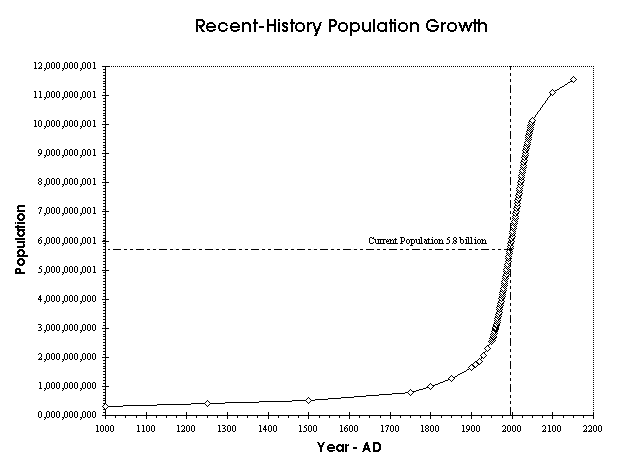There’s too many of us. Such has been the message of my
environmental science class, of Ishmael,
of Eating Animals by Jonathan Safran Foer,
and of Dan Brown’s Inferno. The works
I’ve encountered in the last 8 months by environmentalists, mystery writers and
earnest students alike has showed me that the fundamental problem with humans
is that we always find ways to make more humans.
In my environmental
science class last semester I encountered an article that cites Harvard sociobiologist Edward O. Wilson. Wilson calculated based on
the available arid land that if every single person were to convert to
vegetarianism now, the world could have enough food for 10 billion people.
However, if we continue to live the American meat-etarian diet, the world would
have enough food for 2.5 billion people. What concerns me is the fact that we
currently are in the middle of these two figures and in general show no sign of
curbing neither our consumption nor the global population.
 |
| http://www.ldolphin.org/popul.html |
To further
our problems, many of our belief systems encourage population growth even to
this day. We all know the debate of Planned Parenthood vs. Prolife from an
ethical standpoint (i.e. should we have a say over women’s bodies), but we don’t
even think about the population side. Similarly, there are plenty of
environmental organizations that try to promote green energy, biking, coral
reefs, forests, arable land, pandas, polar bears, etc., but I don’t believe
this is the heart of the issue. The problems spawn from human spawning. We
don’t destroy forests for pastures because we’re inherently evil and have an implacable
vendetta against Brazilian trees, we destroy forests because we are prolific and
actually need more pastures to
sustain us. It’s a simple supply and demand: more people means we need more
energy, means we build more oil pipelines and frack more gas. This enters the
heart of Ishmael and the idea that as
Takers, we “grow without limit” (Quinn, 163). The pipeline will probably
disrupt some species of migrating elk and the gas burn-offs might screw over
the polar bears, but hey we have more population so we must supply more energy.
To me, the
most frustrating part of this discussion is that we have ways to make a change,
but can’t. The W.H.O. says there are 222 million
women worldwide who would use contraception if they had access to it.
So for goodness sake why don’t we send more condoms!? The American meat
industry is one of the most wasteful practices on the planet, so why don’t we
eat less meat!? I know the answers to these questions, and I know the
discussion is drastically more convoluted than the black and white I make it
out to be, but there are solutions, and we – always our Taker selves - ignore
them. Before, I didn’t like the titles “Takers” and “Leavers.” A recent epiphany (like 4 seconds ago), however, just revealed to me that we are Takers because we reap the benefits
of Earth and never give anything back.
Dan Brown’s
novel Inferno tells the tale of
Robert Langdon, who is recruited by the W.H.O. to track down Bertrand Zobrist,
who aims to spread a virus…
 |
| http://www.jofletcherbooks.com/2012/11/here-be-spoilers/ |
It so happens that this virus is released, and makes one
third of the women of the world infertile. While this is a drastic measure, I
find myself drawn to it, like I’m drawn to the unbelievably persnickety
rigidity of Jainism and its environmental sustainability. If the world is at a
point where I’m attracted to a lifestyle where carrots are off-limits (eating
them kills the whole plant), then there must be something wrong. In general, I
believe that the little things do matter. But maybe we’re at the point where we
really do need to become Leavers again.